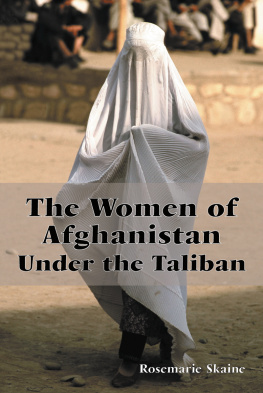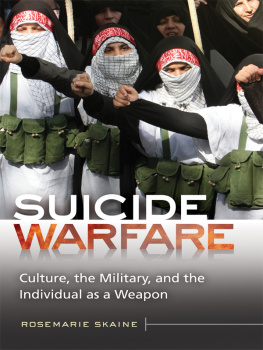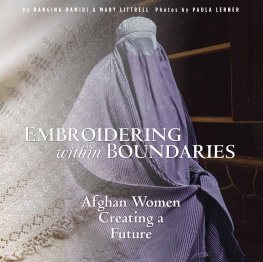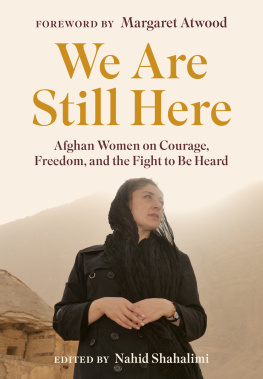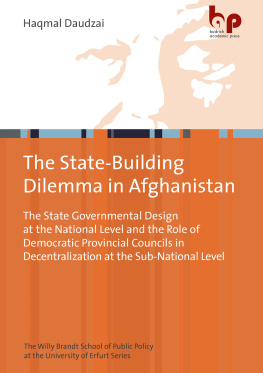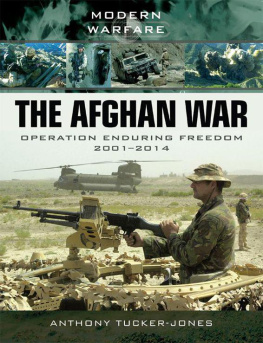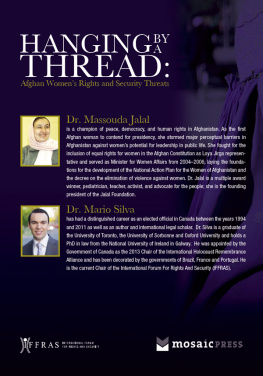Also by ROSEMARIE SKAINE
Women Political Leaders in Africa (2008)
Women of Afghanistan in the Post-Taliban Era: How Lives Have Changed and Where They Stand Today (2008)
Female Suicide Bombers (2006)
Female Genital Mutilation: Legal, Cultural and Medical Issues (2005)
The Cuban Family: Custom and Change in an Era of Hardship (2004)
Paternity and American Law (2003)
Women College Basketball Coaches (2001)
Women at War: Gender Issues of Americans in Combat (1999)
Power and Gender: Issues in Sexual Dominance and Harassment (1996)
THE WOMEN OF AFGHANISTAN UNDER THE TALIBAN
by
Rosemarie Skaine

McFarland & Company, Inc., Publishers
Jefferson, North Carolina
To our Afghan sisters
LIBRARY OF CONGRESS CATALOGUING DATA ARE AVAILABLE
BRITISH LIBRARY CATALOGUING DATA ARE AVAILABLE
e-ISBN: 978-0-7864-8174-3
2002 Rosemarie Skaine. All rights reserved
No part of this book may be reproduced or transmitted in any form or by any means, electronic or mechanical, including photocopying or recording, or by any information storage and retrieval system, without permission in writing from the publisher.
Cover photograph2000 Luke Powell/globalphoto.com
McFarland & Company, Inc., Publishers
Box 611, Jefferson, North Carolina 28640
www.mcfarlandpub.com
Acknowledgments
I thank the people I interviewed. Through them I gained perspective and focus. Haron Amin, Afghan diplomat (first secretary), Islamic State of Afghanistan, United Nations, provided the critical first interview. His insightful, inspirational and informative remarks gave me a sense of direction for this very complex topic.
The Revolutionary Association of the Women of Afghanistan (RAWA) provided interviews with Afghan women and with Shabana, an activist and member of the Cultural Committee. I am grateful to Salma, coordinator of the Foreign Relations Committee; Farid, translator; and Huma and Selay for their assistance. To the women who bared their souls in interviews so that I could record their stories, I am deeply grateful. For the risks they take each day I thank all of these women.
Nasarine Abou-Bakre Gross gave a most helpful interview and has written insightfully on Afghan women. Mora Hashimi and Rahman Hashimi of Springfield, Virginia, provided personal accounts of their lives in Afghanistan.
Peter Tomsen, ambassador-in-residence, University of Nebraska at Omaha and former special envoy to the Afghan Resistance, 19891992, enabled me to understand better the role of the United States in Afghanistans wars. Abdul Raheem Yaseer, coordinator of International Exchange Programs and deputy director of the Center for Afghanistan Studies at the University of Nebraska at Omaha, shared his heritage and understanding and his ongoing work for Afghanistan. Catherine Daly of the Department of Textiles, Clothing and Design and the Research Association for the Center of Afghanistan Studies, University of Nebraska at Omaha, shared with me her expertise on Afghan women and their dress. Mavis Leno, chair of the Feminist Majority Foundations Campaign on Gender Apartheid, and the members of the Feminist Majority have worked tirelessly on behalf of Afghan women.
I am grateful to Susie Gilligan, Feminist Majority, for her facilitation of the interview with Mavis Leno, and to Midhat Abraham, Ph.D., Middle East librarian, University of Arizona Library, Tucson, Arizona, for assistance with transliteration.
Many organizations added to the knowledge base of this book. Angela E.V. King, special adviser to the secretary-general on gender issues and advancement of women, United Nations, Department of Economic and Social Affairs, provided a most helpful official report. Dr. Amir S. Hassanyar, director, Cooperation Centre for Afghanistan, sent informative reports and newsletters. Sima Wali, president, Refugee Women in Development, Inc., Washington, D.C., made published works available. Daoud Yaqub, Afghanistan Foundation, Washington, D.C., emailed current accounts of events as they occurred. In the critical early stages of the book, Janice Eisenhauer, Women for Women in Afghanistan, Calgary, Canada, provided information and a sense of direction.
Senator Charles Grassley (R-Iowa) and Fred Schuster, Northeast Iowa Regional Director, I thank for their ongoing willingness to make my government a meaningful and participatory democracy for me, their constituent. I appreciate their helping me wend my way through the maze of governmental departments.
RADM D.M. Mac Williams, Jr., U.S. Navy (ret.), former Naval Investigative Service Commander, provided much appreciated support and assistance.
James C. Skaine edited and assisted in the research. My late, beloved father, Warren V. Keller, gave a lasting gift of love. Other family members provided encouragement: Richard L. and Nancy L. Craft Kuehner, William V. and Carolyn E. Guenther Kuehner, and Paulette, George and Sarah Mouchet.
My friend Robert Kramer, professor emeritus, Center for Social and Behavioral Research and Department of Sociology, Anthropology, and Criminology, University of Northern Iowa, provided invaluable expertise in cyber technology.
My friend of yesteryear, Cass Paley, I thank for his gift of truth that can set anyone free into an invincible summer.
Tables
Abbreviations
In the interests of clarity and consistency, I have used the abbreviations and spellings indicated below, unless a direct citation spells something otherwise.
AI Amnesty International
AWN Afghan Womens Network
AWC Afghan Womens Council
CCA Co-operation Centre for Afghanistan
DRA Democratic Republic of Afghanistan
ICHRDD International Centre for Human Rights and Democratic Development
ICRC International Committee of the Red Cross
ISI Inter-Services Intelligence Agency of Pakistan
KOAW Khalq Organization of Afghan Women
NEGAR Defense of Afghan Womens Rights
NGO non-governmental organization
NIFA National Islamic Front of Afghanistan
PDPA Peoples Democratic Party of Afghanistan
PHR Physicians for Human Rights
RAWA Revolutionary Association of the Women of Afghanistan
RefWID Refugee Women in Development
UFA United Front for Afghanistan (Northern Alliance)
UNHCR United Nations High Commissioner for Refugees
UNICEF United Nations International Childrens Emergency Fund
UNOCHA United Nations Office for the Coordination of Humanitarian Assistance in Afghanistan
UNSMA United Nations Special Mission for Peace in Afghanistan
WAPHA Womens Alliance for Peace and Human Rights in Afghanistan
WDOA Womens Democratic Organization of Afghanistan
WLUML The Women Living Under Muslim Laws
WORFA Women on the Road for Afghanistan
Preface
Im the woman who has awoken
Ive arisen and become a tempest through the ashes of my burnt children
Ive arisen from the rivulets of my brothers blood
My nations wrath has empowered me
My ruined and burnt villages fill me with hatred against the enemy
Oh compatriot, oh brother, no longer regard me weak and incapable
With all my strength Im with you on the path of my lands liberation.
My voice has mingled with thousands of arisen women
My fists are clenched with the fists of thousands of compatriots
Along with you Ive stepped up to the path of my nation,
Next page
